
The global air cargo industry in 2024 has demonstrated resilience and strategic growth. According to the latest IATA World Air Transport Statistics (WATS) report, cargo demand for the top 25 airlines, measured in cargo tonne-kilometers (CTK), increased by 9.4% compared to 2023.
Despite lingering economic uncertainties and supply chain disruptions, major cargo airlines have reported significant gains in freight volumes, fleet expansion, and route optimization.
In 2024, the demand for air cargo grew faster than available capacity. This was driven by problems in ocean shipping due to the Red Sea conflict and a rise in e-commerce.
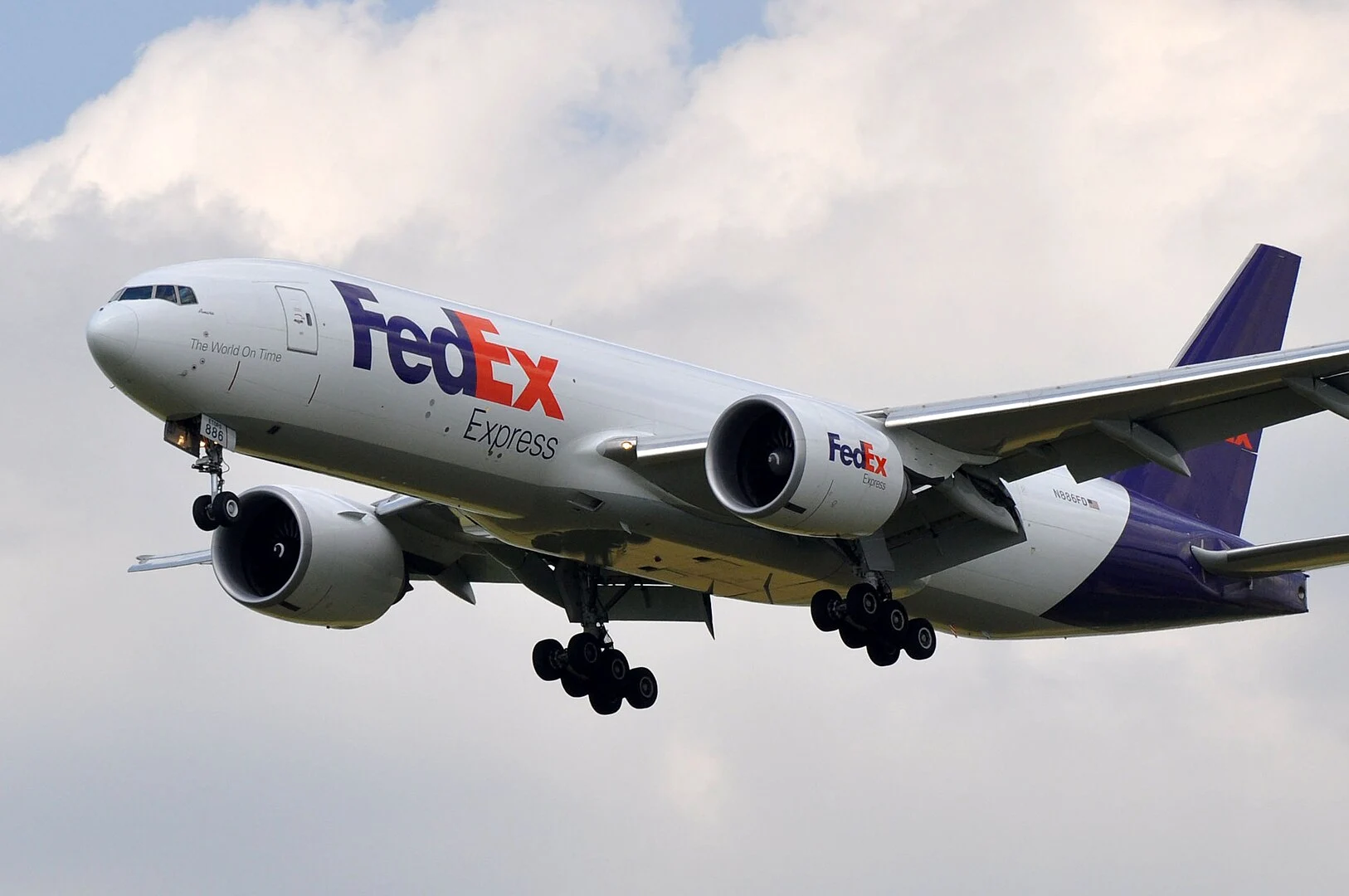 Photo: By ERIC SALARD from PARIS, FRANCE – N886FD CDG, CC BY-SA 2.0, https://commons.wikimedia.org/w/index.php?curid=45118705
Photo: By ERIC SALARD from PARIS, FRANCE – N886FD CDG, CC BY-SA 2.0, https://commons.wikimedia.org/w/index.php?curid=45118705FedEx Express and UPS: Top Cargo Airlines
FedEx Express ( FX) and UPS Airlines (5X) remain dominant players in the global cargo landscape. FedEx has maintained its leadership through extensive hub operations, particularly at Memphis (MEM) and Indianapolis (IND), while UPS continues to expand its Louisville (SDF) superhub.
FedEx maintained its position at the top of the rankings, recording a modest year-on-year increase of 1.2% to 18.1bn CTK.
However, its growth was small compared with other airlines, particularly those within the top 10. By 2026, FedEx is set to add the following aircraft to its fleet:
- Two 777Fs
- 14 767Fs
- 10 ATR-72 600Fs
- 31 Cessna 408
FedEx’s integration of Boeing 767 and 777 freighters has improved fuel efficiency and reduced turnaround times.
UPS, meanwhile, which saw a transport of 15,094 CTK, has focused on expanding its healthcare logistics and time-definite delivery services, reinforcing its role in critical supply chains.
Compared to the nearly 700 aircraft that FedEx has in its fleet, UPS has only 294: 95 of these are the Boeing 767-300 type, the highest number of aircraft type in its fleet.
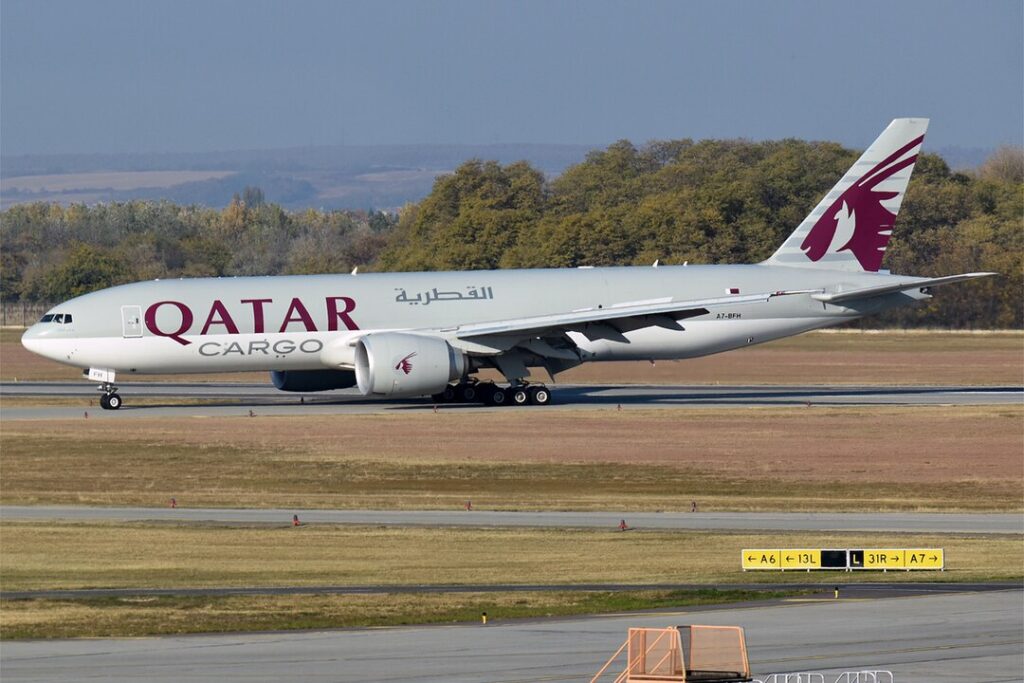 Photo: By Anna Zvereva – https://www.flickr.com/photos/130961247@N06/28193134160/, CC BY-SA 2.0, https://commons.wikimedia.org/w/index.php?curid=112728194
Photo: By Anna Zvereva – https://www.flickr.com/photos/130961247@N06/28193134160/, CC BY-SA 2.0, https://commons.wikimedia.org/w/index.php?curid=112728194Qatar Airways Cargo: Aggressive Expansion
Qatar Airways Cargo (QR) has climbed the rankings with its aggressive expansion across Asia, Europe, and Africa. Operating from its hub in Doha (DOH), the airline has added new freighter destinations and increased belly cargo capacity on passenger flights.
The carrier saw a 5.6% rise in the volume of cargo transported as it soared to 15.2bn CTK. Qatar’s reintroduced belly capacity after the pandemic has helped it garner these impressive numbers.
The Middle East giant’s fiscal year report 2024/2025 revealed that Qatar Airways Cargo “transported over 1.5 million tonnes”.
Qatar Airways Cargo has also invested in digital transformation, implementing cargo management platforms that enhance booking efficiency and shipment tracking.
The airline’s commitment to sustainability, including carbon offset programs and fuel-efficient aircraft, aligns with global environmental standards.
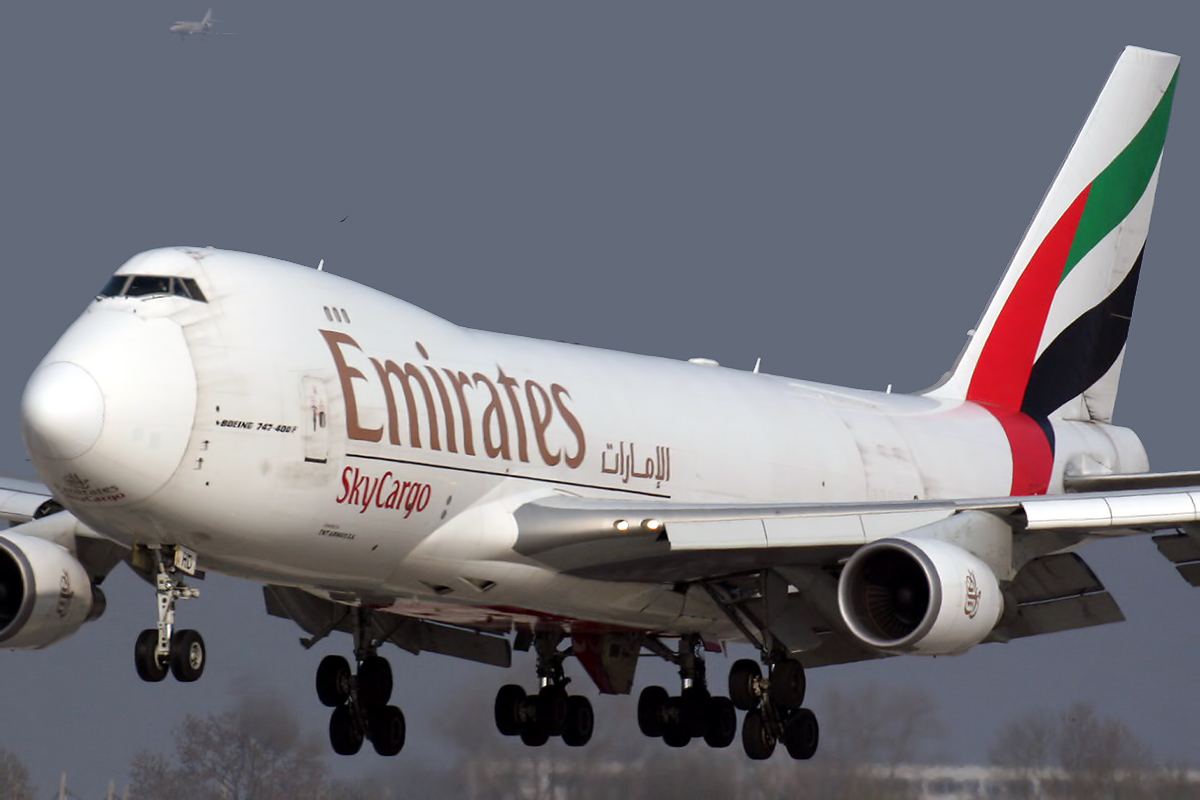 Photo: By Curimedia | P H O T O G R A P H Y from Munich, Germany – Boeing 747-4HAF/ER/SCD Emirates SkyCargo (TNT Airways) OO-THD, CC BY 2.0, https://commons.wikimedia.org/w/index.php?curid=44212369
Photo: By Curimedia | P H O T O G R A P H Y from Munich, Germany – Boeing 747-4HAF/ER/SCD Emirates SkyCargo (TNT Airways) OO-THD, CC BY 2.0, https://commons.wikimedia.org/w/index.php?curid=44212369Emirates SkyCargo: Strategic Optimization
Emirates SkyCargo (EK), which continued to leverage its Dubai (DXB) hub to connect key global markets, transported 12,354 CTK last year. The airline has optimized its freighter network and increased cargo hold utilization on passenger aircraft.
Emirates’ focus on pharmaceuticals, perishables, and luxury goods has positioned it as a preferred carrier for time-sensitive shipments.
In 2024, Emirates SkyCargo expanded its fleet with additional Boeing 777Fs and launched new routes to underserved regions in Africa and South America. These moves support the airline’s goal of becoming a global logistics enabler.
According to Emirates, the wide-bodied fleet of its SkyCargo is amongst the youngest in the world.
Here are the capacities of the carrier’s cargo operations:
| Aircraft Type | Cargo Tonnage | Cargo Volume |
| Airbus A380-800 | 17,000 kg | 88 mł |
| Boeing 777-300ER | 20,000 kg | 125 mł |
| Boeing 777F | 107,000 kg | 550 mł |
| Boeing 777-200LR | 13,000 kg | 90 mł |
| Boeing 747 | 117,000 kg | 625 mł |
| Airbus A350-900 | 16,000 kg | 70 mł |
Atlas Air: Top Cargo Carrier
Despite having the biggest increase in volume, US-based Atlas Air (5Y)’s 11,942 CTK volume transported made it fifth in the list of the top global cargo carriers in 2024. The airline added two 777Fs, four 747-400Fs, four 747-8Fs, and one 767-300P2F to its fleet, enhancing its long-haul capabilities and operational flexibility.
These additions support Atlas Air’s growing partnerships with e-commerce giants and integrators, enabling the carrier to meet rising demand across transpacific and transatlantic routes. Here are a few aircraft in Atlas Air’s fleet.
| Aircraft Type | In Service | Parked | Total Current | Avg. Age |
| Boeing 747-400 | 48 | 0 | 48 | 25.5 yrs |
| Boeing 747-8 | 15 | 2 | 17 | 10.2 yrs |
| Boeing 767-300 | 9 | 1 | 10 | 32.4 yrs |
| Boeing 777F | 11 | 0 | 11 | 4.8 yrs |
| Total | 83 | 3 | 86 | 20.6 yrs |
Atlas Air’s strategic focus on fleet modernization and contractual operations with DHL, Amazon, and other logistics firms has contributed to its upward trajectory.
The airline continues to leverage its ACMI (Aircraft, Crew, Maintenance, and Insurance) model to deliver scalable cargo solutions globally. The airline was quoted as having said:
The widebody market is where we continue to see the strongest demand from our customers, as well as expanding opportunities in global e-commerce.”
 Photo: wilco737
Photo: wilco737Korean Air Cargo and China Airlines Cargo: APAC Leaders
Korean Air Cargo (KE) and China Cargo Airlines (CI) have reported strong performance in the Asia-Pacific region, as they transported 8,728 CTK and 4,350 CTK, respectively.
Korean Air has benefited from increased demand for electronics and automotive components, while China Airlines has expanded its freighter operations to Europe and North America.
Both carriers have invested in fleet upgrades, with Korean Air adding Boeing 777Fs and China Airlines converting older passenger aircraft into freighters. Their strategic positioning in key manufacturing hubs has enabled them to capture market share in high-volume trade lanes.
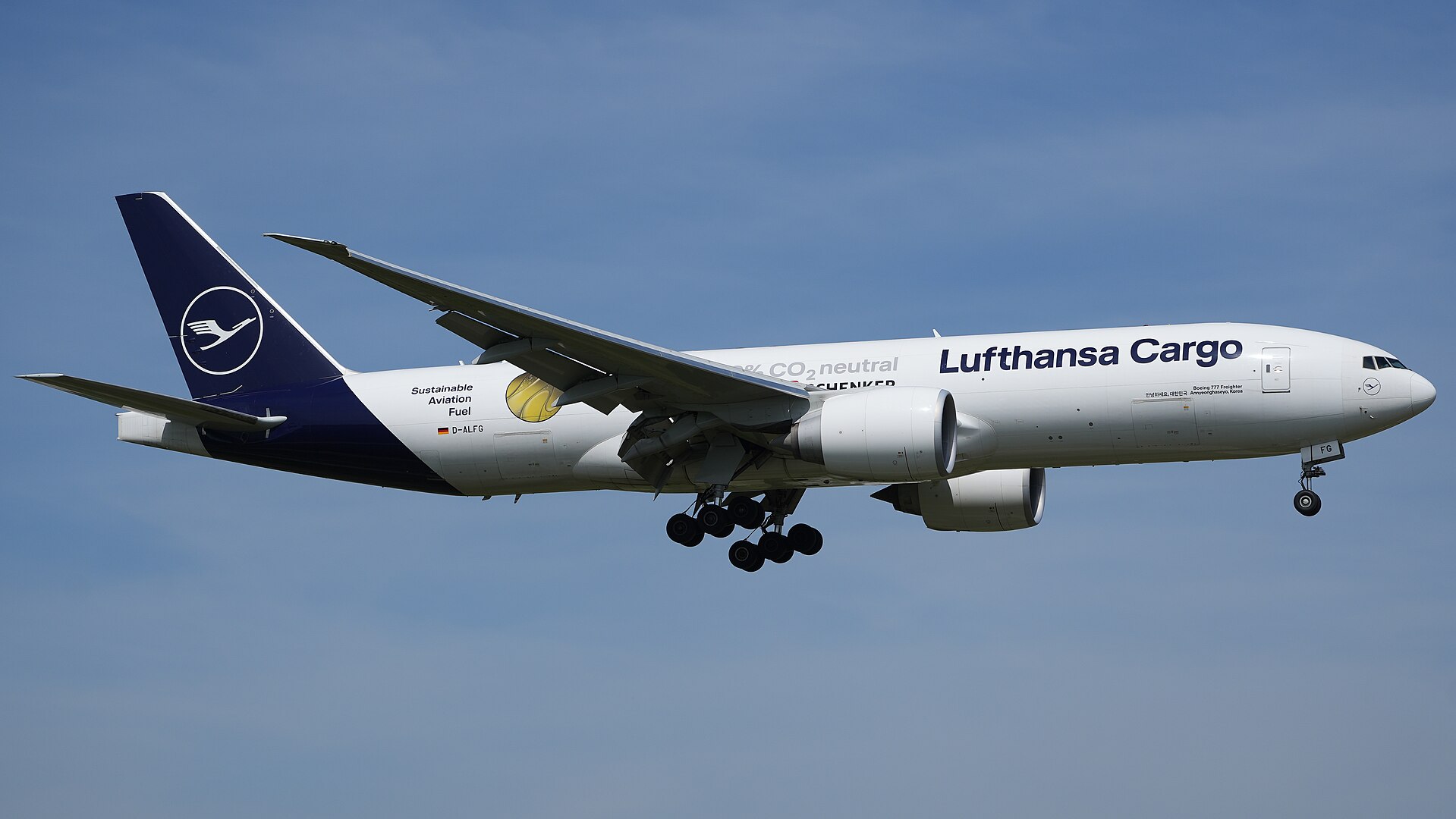 Photo: By MarcelX42 – Own work, CC BY-SA 4.0, https://commons.wikimedia.org/w/index.php?curid=133211643
Photo: By MarcelX42 – Own work, CC BY-SA 4.0, https://commons.wikimedia.org/w/index.php?curid=133211643Lufthansa Cargo: Sustainability Growth
Lufthansa Cargo (LH) has maintained its competitive edge through innovation and environmental initiatives. Operating from Frankfurt (FRA), the airline has introduced digital booking systems and AI-driven cargo handling solutions.
In 2024, Lufthansa Cargo expanded its fleet with Airbus A321 freighters for intra-European routes and continued its partnership with DB Schenker for sustainable logistics.
The airline’s focus on pharma and express cargo has strengthened its role in Europe’s supply chain ecosystem.
 Photo: Turkish Airlines Hub | Istanbul (IST) is Turkish Airlines he… | Flickr
Photo: Turkish Airlines Hub | Istanbul (IST) is Turkish Airlines he… | FlickrTurkish Cargo: Fastest Growing
Turkish Cargo (TK) has emerged as a fast-growing player in the global cargo market. Operating from Istanbul (IST), the airline has expanded its freighter fleet and opened a state-of-the-art cargo terminal at Istanbul Airport.
Turkish Cargo’s strategic location enables efficient connections between Asia, Europe, and Africa.
The airline has added new destinations and increased frequency on high-demand routes, positioning itself as a key logistics hub in the region. It transported 10,240 CTK last year.
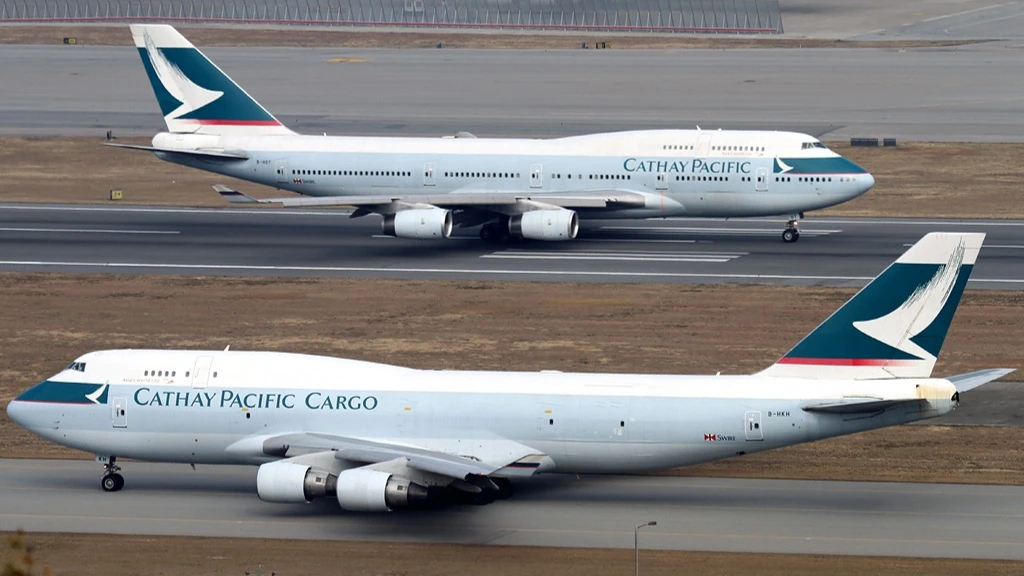 Photo: Christian Junker | Photography | Flickr
Photo: Christian Junker | Photography | FlickrSingapore Airlines and Cathay Pacific Cargo: SEA’s Strength
Singapore Airlines Cargo (SQ) and Cathay Pacific Cargo (CX) continue to play vital roles in Southeast Asia’s air freight sector.
Singapore Airlines has focused on high-value cargo such as electronics and pharmaceuticals, while Cathay Pacific has expanded its freighter network to North America and Europe.
Both carriers have invested in digital cargo platforms and sustainability initiatives, including fuel-efficient aircraft and carbon offset programs. Their strategic hubs in Singapore (SIN) and Hong Kong (HKG) support efficient transshipment and regional connectivity.
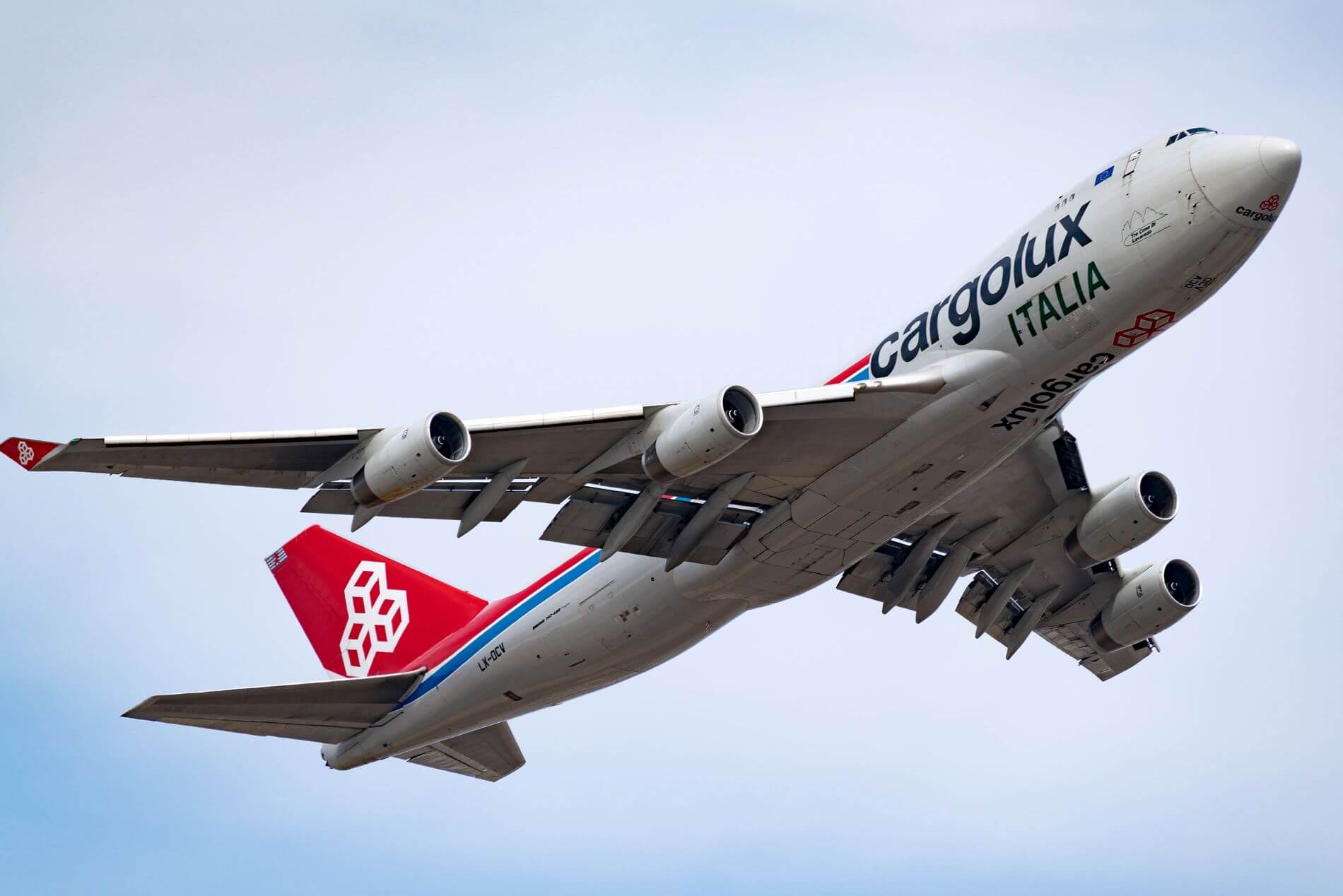
Cargolux (CV): Luxembourg-Based Specialist Carrier
Cargolux (ICV), based in Luxembourg (LUX), remains a specialist in heavy and outsized cargo. The airline operates an all-Boeing 747 freighter fleet and serves niche markets across Africa, the Americas, and Asia.
The carrier has 15 747-400s and 14 747-8s. These have an average age of 20.7 and 12.5 years.
In 2024, Cargolux expanded its charter operations and introduced new services for oil and gas equipment, aerospace components, and humanitarian aid. Its expertise in complex logistics has earned it a reputation for reliability and flexibility.
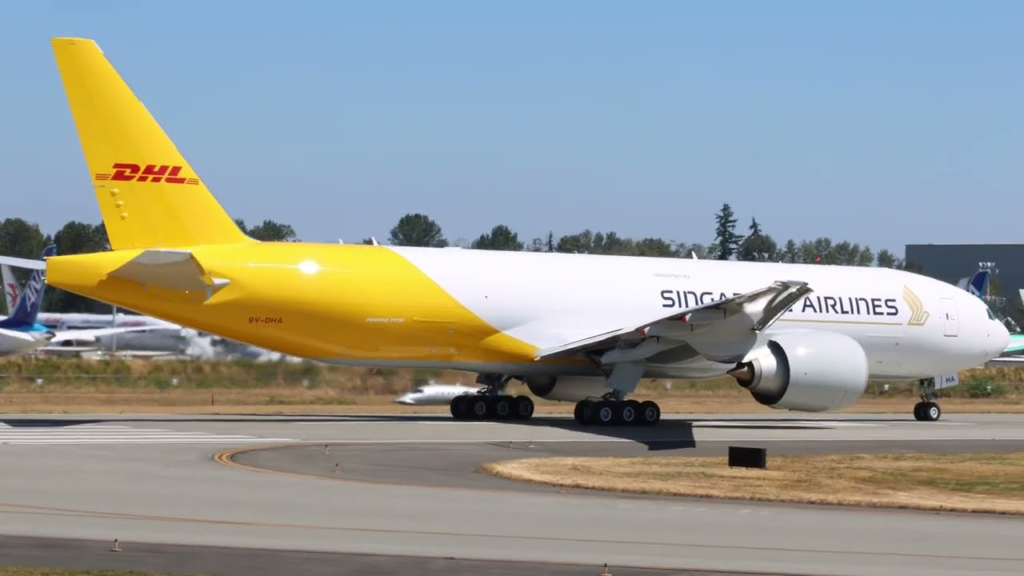 Photo: Jaypainespotter YouTube thumbnail
Photo: Jaypainespotter YouTube thumbnailDHL Aviation and SF Airlines: Integrators and Regional Leaders
DHL Aviation and SF Airlines have continued to grow in their respective markets. DHL has expanded its European and intercontinental operations, while SF Airlines, based in China, has increased its domestic and regional coverage.
Both carriers have invested in automation, digital tracking, and fleet modernization.
DHL’s use of converted freighters and SF Airlines’ focus on e-commerce logistics reflect broader industry trends toward speed and efficiency.
 Photo: Singapore Airlines Cargo Boeing 747-412F(SCD) 9V-SFM,
Photo: Singapore Airlines Cargo Boeing 747-412F(SCD) 9V-SFM,By Afpwong – Own work, CC BY-SA 4.0, https://commons.wikimedia.org/w/index.php?curid=44349115
Top 25 Cargo Airlines Rankings
Here’s a list of airlines that carried the highest number of cargo in 2024, and I am sure some of the parcels were ordered by you and would have flown by them.
| Rank (by CTK) | Airline | 2024 CTK (m) |
| 25 | China Eastern Airlines | 3,451 |
| 24 | All Nippon Airways | 3,603 |
| 23 | Etihad Airways | 3,627 |
| 22 | British Airways | 3,795 |
| 21 | LATAM | 4,270 |
| 20 | China Cargo Airlines | 4,350 |
| 19 | EVA Air | 4,536 |
| 18 | Ethiopian Airlines | 4,621 |
| 17 | Kalitta Air | 4,653 |
| 16 | United Airlines | 5,254 |
| 15 | China Airlines | 5,285 |
| 14 | Singapore Airlines | 5,693 |
| 13 | Lufthansa | 6,025 |
| 12 | AeroLogic | 6,386 |
| 11 | Air China | 7,416 |
| 10 | Cargolux | 8,263 |
| 9 | Cathay Pacific Airways | 8,503 |
| 8 | China Southern Airlines | 8,653 |
| 7 | Korean Air | 8,728 |
| 6 | Turkish Airlines | 10,240 |
| 5 | Atlas Air | 11,942 |
| 4 | Emirates | 12,354 |
| 3 | United Parcel Service (UPS) | 15,094 |
| 2 | Qatar Airways | 15,211 |
| 1 | Federal Express (FedEx) | 18,133 |
Bottom Line
The top 25 cargo airlines in 2024 have demonstrated adaptability and strategic foresight. Key trends include:
- Fleet modernization: Airlines are replacing older aircraft with fuel-efficient freighters.
- Digital transformation: Cargo management systems and AI tools are improving operational efficiency.
- Sustainability: Carriers are adopting carbon offset programs and eco-friendly practices.
- E-commerce growth: Rising demand for fast delivery is reshaping route planning and capacity allocation.
As global trade continues to evolve, cargo airlines are expected to invest further in infrastructure, technology, and partnerships. The integration of multimodal logistics and real-time tracking will define the next phase of air cargo innovation.
Stay tuned with us. Further, follow us on social media for the latest updates.
Join us on Telegram Group for the Latest Aviation Updates. Subsequently, follow us on Google News
Busiest Passengers and Cargo Airports in the World in 2025
The post Top Cargo Airlines in the World, No. 7 Will Surprise You!! appeared first on Aviation A2Z.

 2 miesięcy temu
2 miesięcy temu




![Ślubowanie kadetów i nowa strzelnica w Zespole Szkół numer 5 w Rybniku [FOTO]](https://www.naszrybnik.com/photos/176393477557-908806-.jpg)







